You are here: Home / News
January 30, 2026

EmpowerNL Members are invited to come and get their taxes completed by CRA Tax volunteers for free.
To be eligible to use the services, you must have:
1. Total Family income Less than or equal to:
- One Person – $40.000
- Two people – $55.000
- Three People – $60.000
2. Simple tax return, meaning if an individual has no income or if their income comes from the list of accepted sources below:
- employment
- pension benefits, such as the Canada Pension Plan
- Old Age Security
- disability insurance
- employment insurance
- social assistance
- registered retirement savings plans (RRSPs)
- scholarships, fellowships, bursaries, or grants interest (under $1,200)
Taxes will NOT be completed for self-employment or business income
Event Details
Date: Thursday, March 19, 2026
Time: 12:30 pm – 3:00 pm
Location: Empower
Register Here (link is at the bottom of the page): Empower Member Free Tax Clinic Registration Form
Registration is required.
January 30, 2026
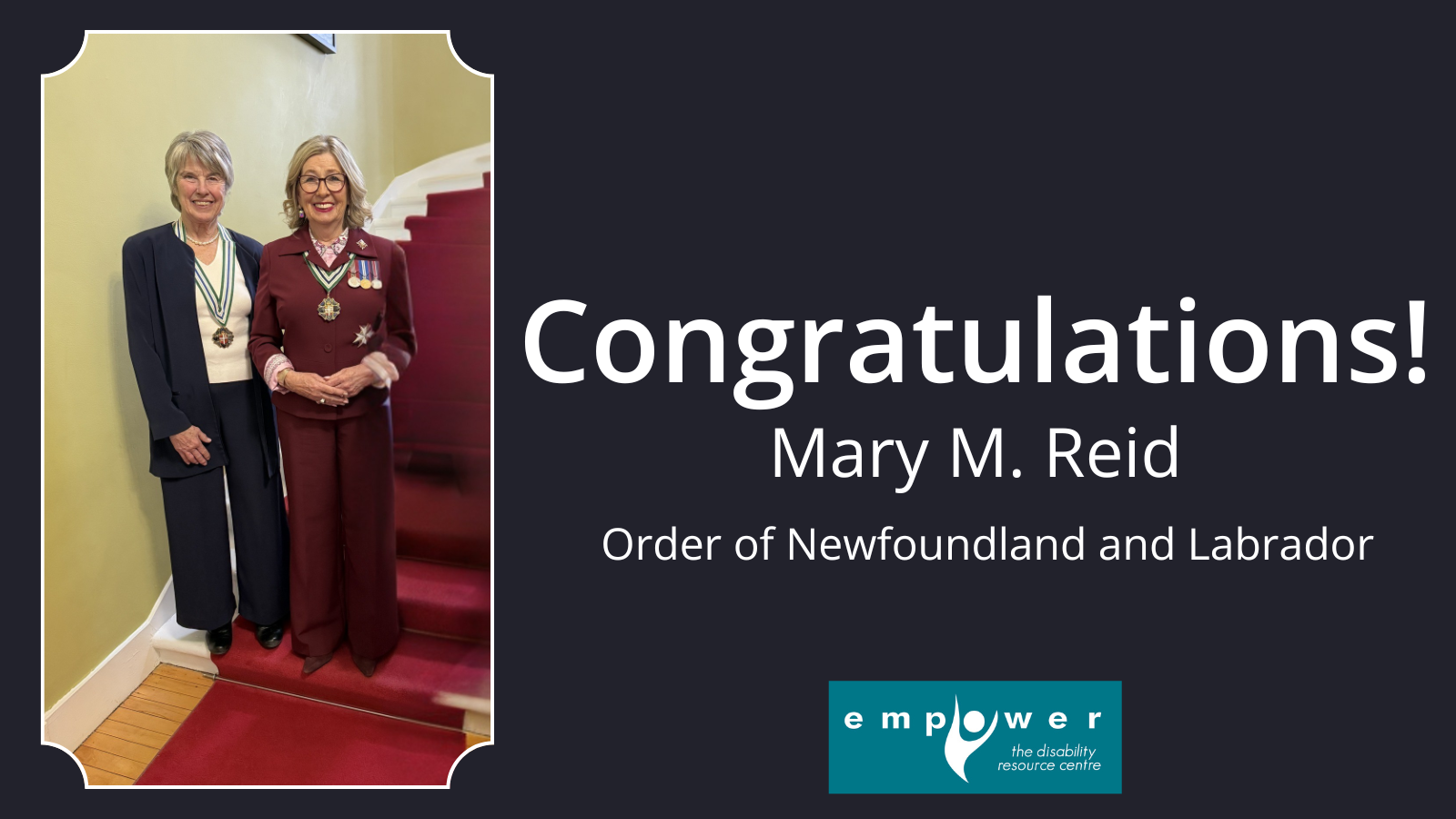
We’re thrilled to congratulate Mary Reid, our former (and first ever) Executive Director, on receiving this well-deserved and prestigious award! 🎉
Ms. Reid – your leadership, dedication, and lasting impact continue to inspire our organization and the wider community. We’re so proud of all you’ve accomplished and grateful for the foundation you helped build. Congratulations on this incredible achievement!
For more than 40 years, Mary Reid has been a devoted advocate for advancing the rights of persons with disabilities in Newfoundland and Labrador. Working at community, municipal, provincial and federal levels, she has shaped policies, legislation and programs to reflect the inherent rights of people to have equitable access.
Ms. Reid began her work in 1982 in a leadership role with Civic #4, a transitional residence for people with physical disabilities. It was here that she championed independence and individual choice and guided the organization through its transformation into an Independent Living Resource Centre.
Ms. Reid’s early work was one of creating partnerships with other organizations, individuals and government offices. This approach carried on throughout her career.
Ms. Reid was also active on the national scene, contributing to the work of organizations which promoted the disability rights and independent living movements.
Ms. Reid took a leadership role within the City of Ottawa as their first Accessibility Officer, to assist in their preparations for provincial accessibility legislation. She then returned to the province to join the public service of the provincial government as the first director of a new Disability Policy Office. Ms. Reid brought her leadership and advocacy work into this role as she and her office worked across government departments to improve services, communications, decision-making processes, policies and legislation. Her work focused on changing the environment so people with disabilities had equitable access. Ms. Reid led the province’s first Inclusion strategy and three-year action plan: both designed to identify, remove and prevent barriers experienced by people with disabilities.
Throughout her career, Ms. Reid worked collaboratively with disability organizations and governments to identify and remove barriers – barriers that are physical, systemic and attitudinal.
Ms. Reid served as Vice-Chairperson of Accessibility Standards Canada – a federal government corporation established to develop accessibility standards. Once again, this was in an inaugural role, where she brought leadership and advocacy into the initial establishment of a new initiative.
More recently, Ms. Reid, with Joanne MacDonald, co-led the History of Disability Rights project. Through this initiative, the stories, experiences and milestones of disabilities rights within the province are preserved in perpetuity. Future organizations, policy and decision-makers, researchers, academics, and the public can access video oral histories and documents that record the experiences, decisions, ups and downs of a continuing quest for securing the rights of persons with disabilities.
Ms. Reid’s unwavering commitment to disability justice left an impact on the landscape of inclusion in Newfoundland and Labrador. Her commitment to placing lived experience at the centre of policy, legislation and services encourages and reminds decision makers of this essential element. Ms. Reid’s work and advocacy contributed to a growing culture of equity, accessibility and inclusion.
(photo from the Facebook page of Lieutenant Governor Joan Marie J. Aylward; biography content from Government of Newfoundland and Labrador press release, Jan. 27, 2026)
January 29, 2026
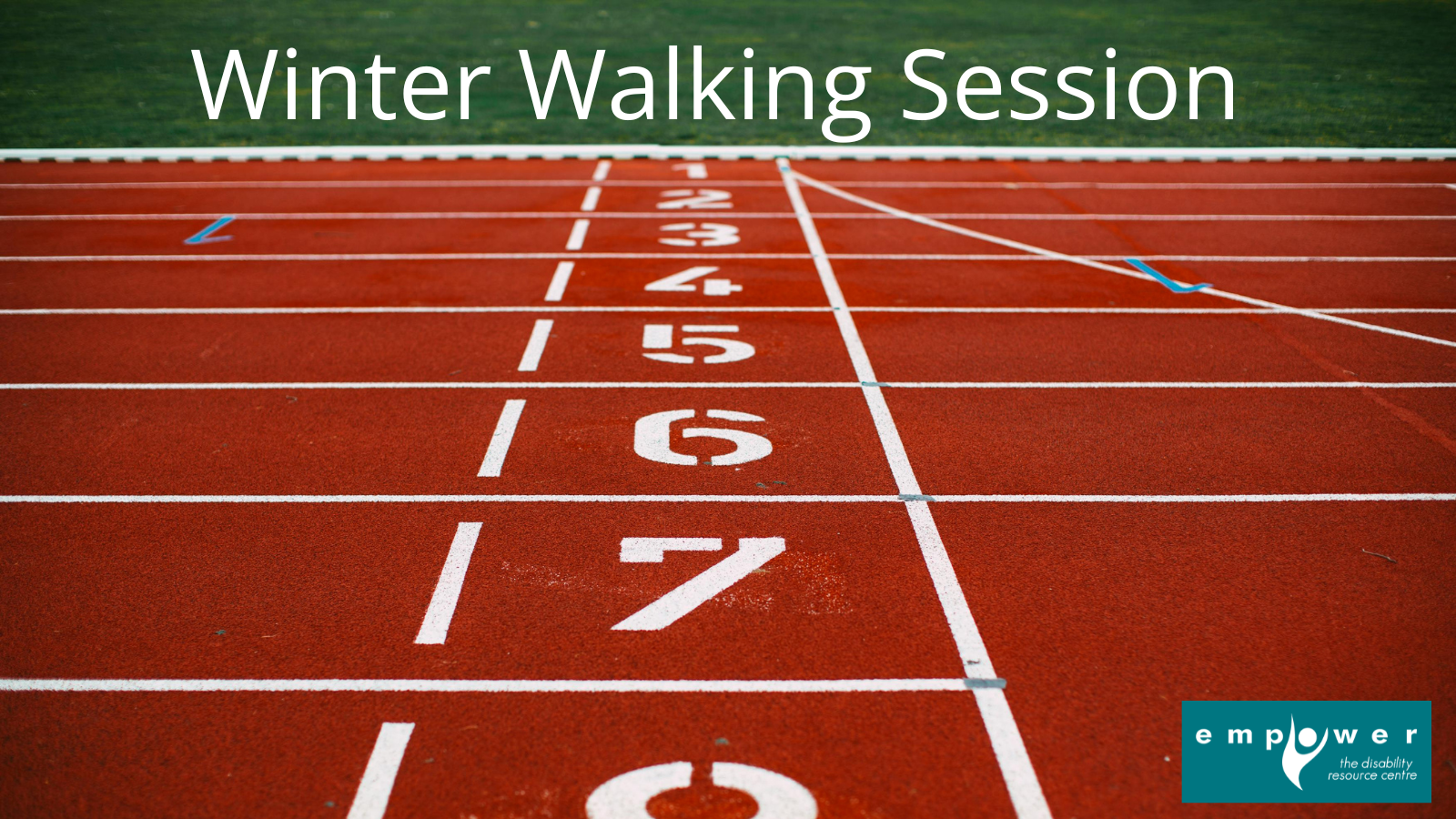
Join us for a walk around the walking track at the HGR Mews Centre. Have a chat with friends and get moving. A great way to get out and be active during these cold winter months.
Event Details
(If there is interest in this Session, we will continue monthly.)
January 23, 2026
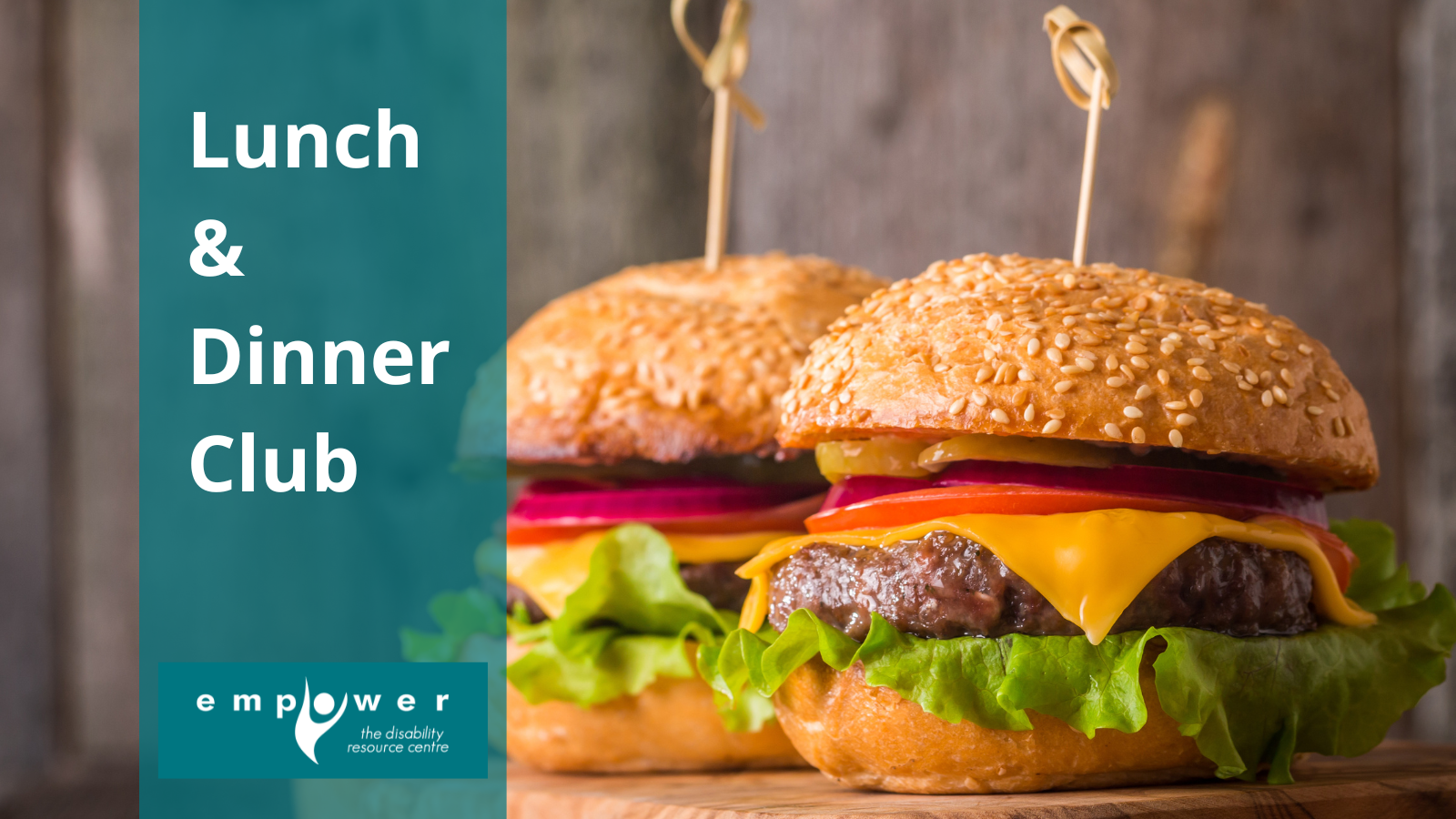
During our Lunch and Dinner Clubs, Members of Empower come together to enjoy a meal at a restaurant in our community.
February Lunch Club Details
February Dinner Club Details
Registration is required.
January 22, 2026
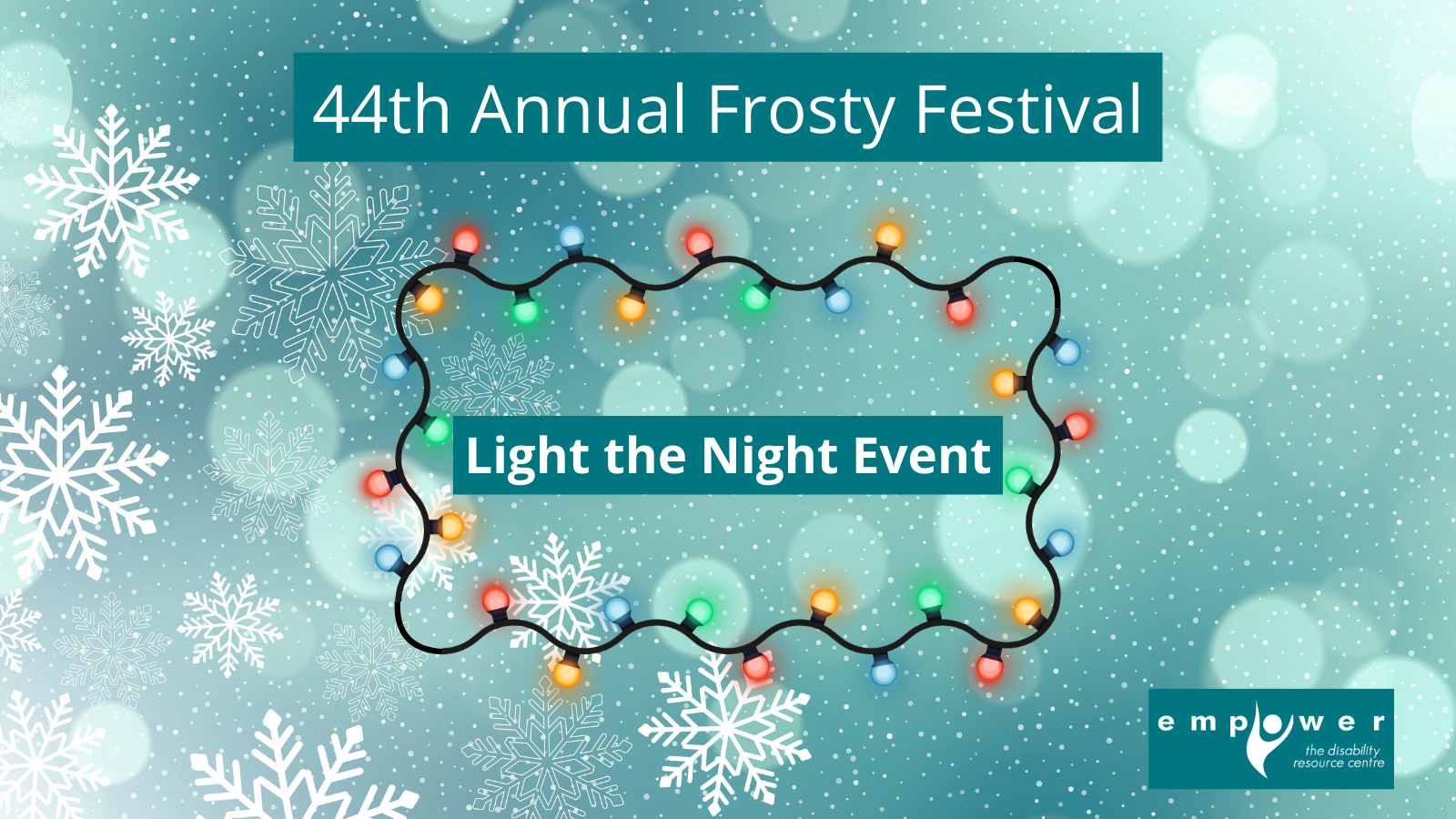
Bundle up and celebrate the start of the 44th Annual Mount Pearl Frosty Festival. Join us for an unforgettable winter evening with our dazzling lights and entertainment. You can wear creative, light-up accessories. Hot chocolate and sweet treats will be provided.
Event Details:
- Date: Thursday, February 5, 2026
- Time: 6:00 pm – 7:00 pm
- Meeting Time: 5:30 pm, meet at the main gates of St. David’s Park
- Location: 26 St David’s Ave, Mount Pearl
Register here: Light the Night Frosty Festival Form
Registration required.
Help kick off another season of winter wonder and community celebration.
January 8, 2026
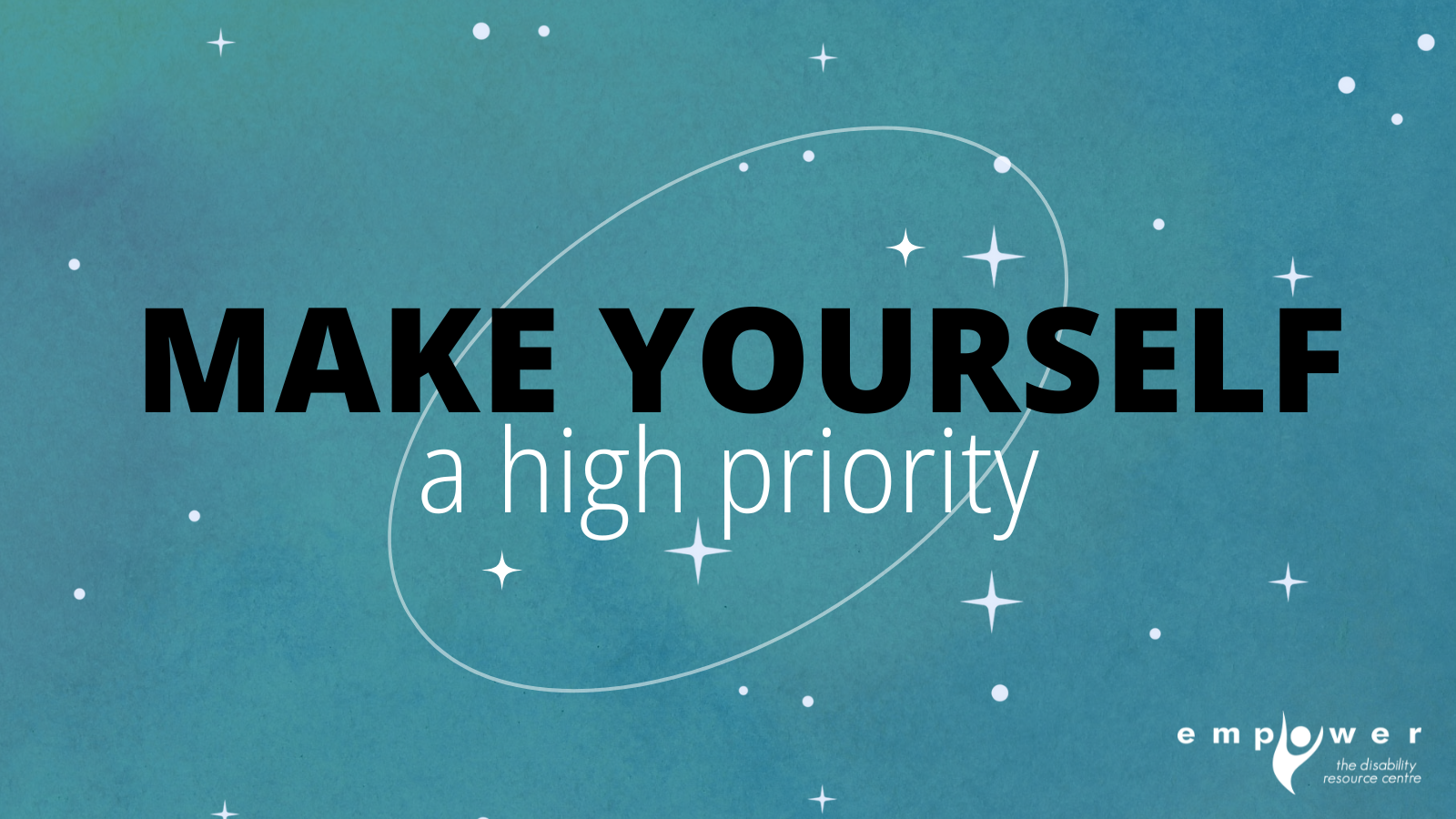
This month’s peer support group focuses on self care. Join Mandy and Jen to learn helpful tips and share what works for you.
Peer Support Session Details
Date: Monday, January 26, 2026
Time: 6:30 PM to 8:00 PM
Location: Virtual session on Zoom
Registration Form: Peer Support Group Registration Form
January 7, 2026
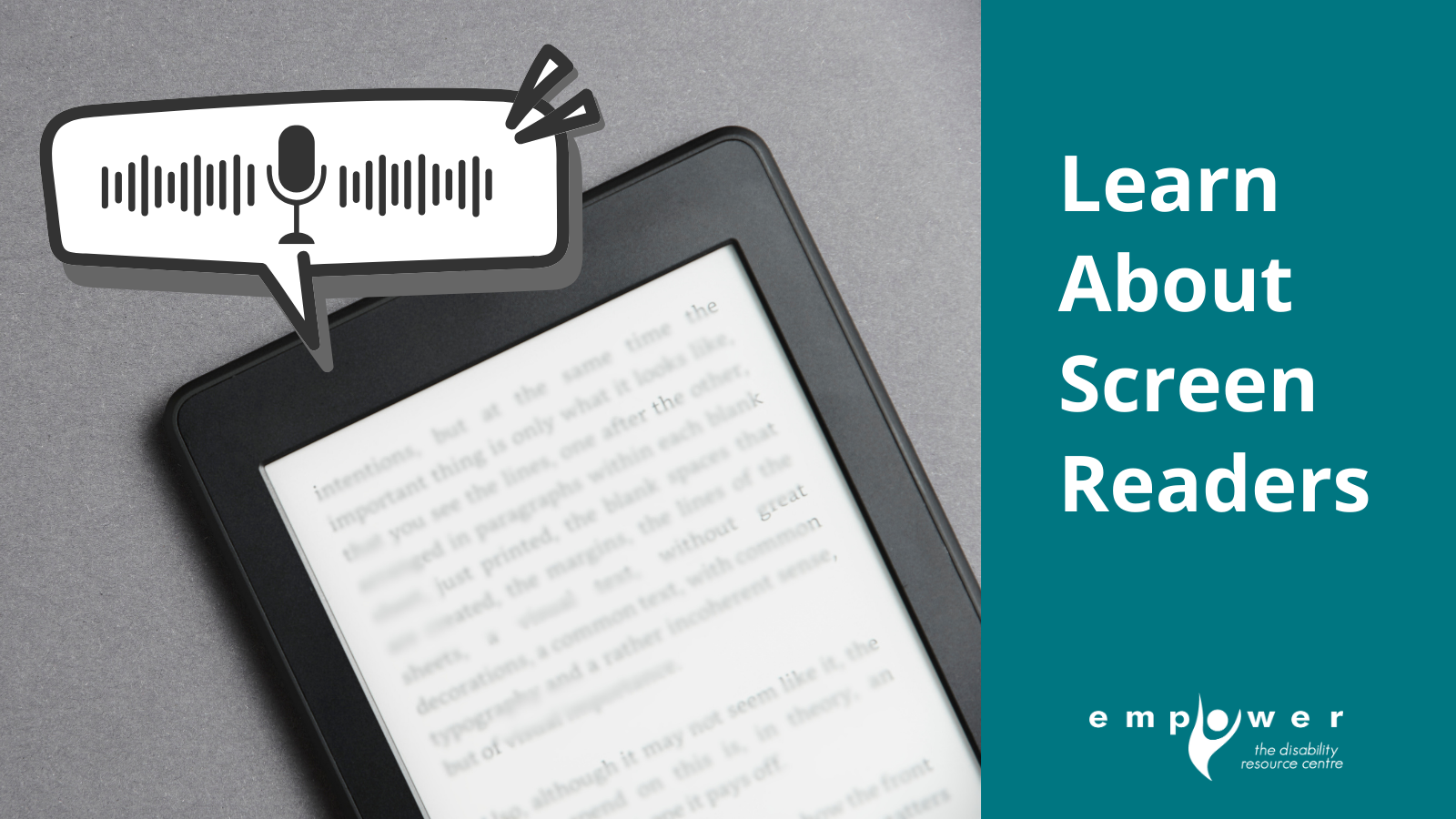
This online session explains different screen reader tools you can use on computers, phones, and tablets. The session is easy to follow and does not require technical experience.
What We Will Talk About
- Screen readers for Windows PCs, Mac, and Linux
- Screen readers for iPhones
- Screen readers for Android phones and tablets
- What each screen reader does and how it helps with everyday tasks
Why This Session Is Helpful
- Screen readers help you use email, websites, and apps
- Learning your options helps you choose what works best for you
- Great for beginners or anyone wanting to learn more
Event Details – Screen Readers Session
- Date: January 22, 2026
- Time: 1:00 PM to 2:30 PM
- Location: Virtual session on Zoom
Registration Form: Learning About Screen Readers Registration Form
January 1, 2026
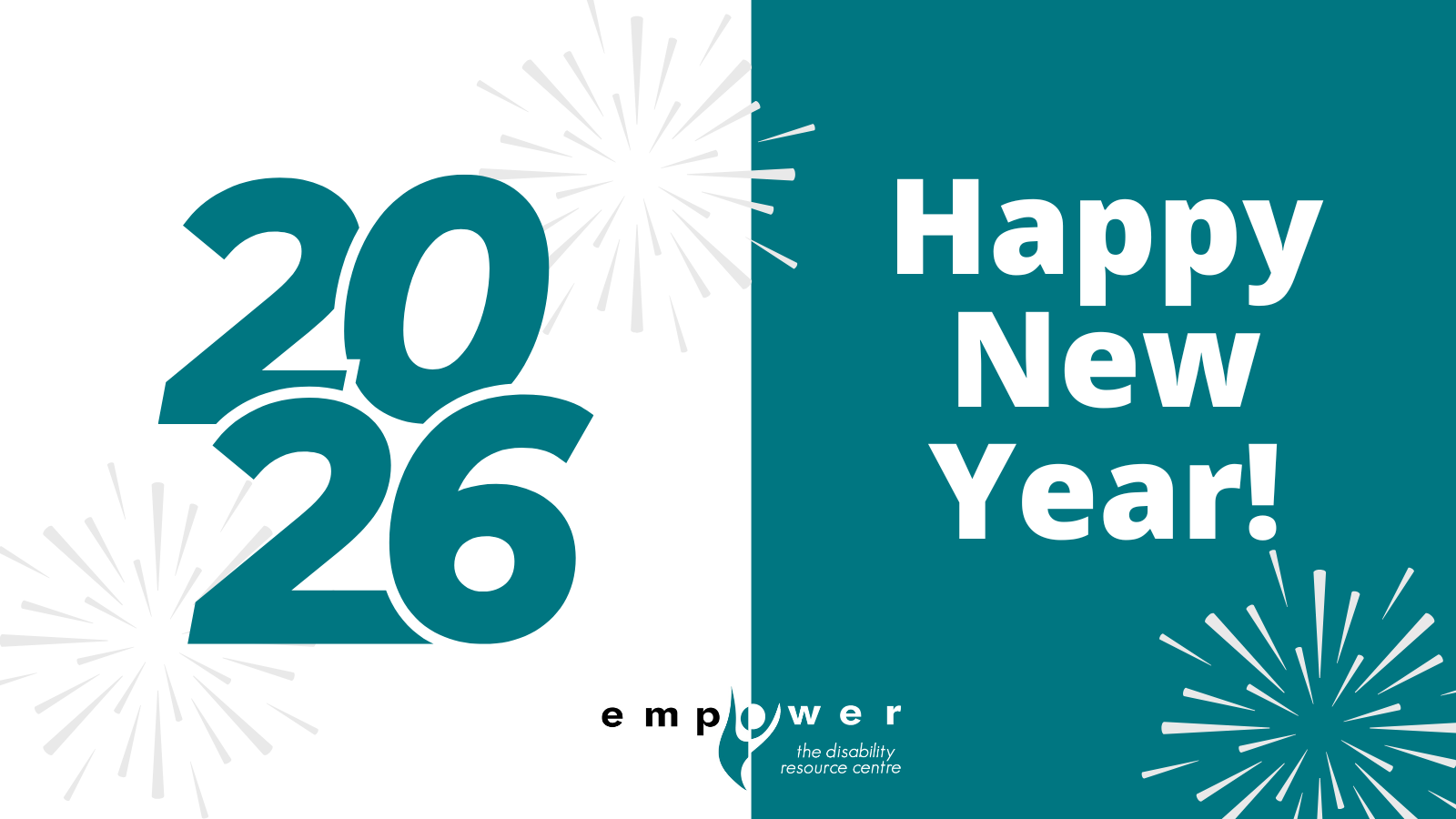
Happy New Year!🎉
As we welcome the year ahead, we hope it brings more accessibility, understanding, and care — and more space for rest, joy, and connection on your own terms. Thank you for being part of this community and for everything you contribute just by being you.
Here’s to a year that supports you, includes you, and values you every day, in every way!
December 25, 2025
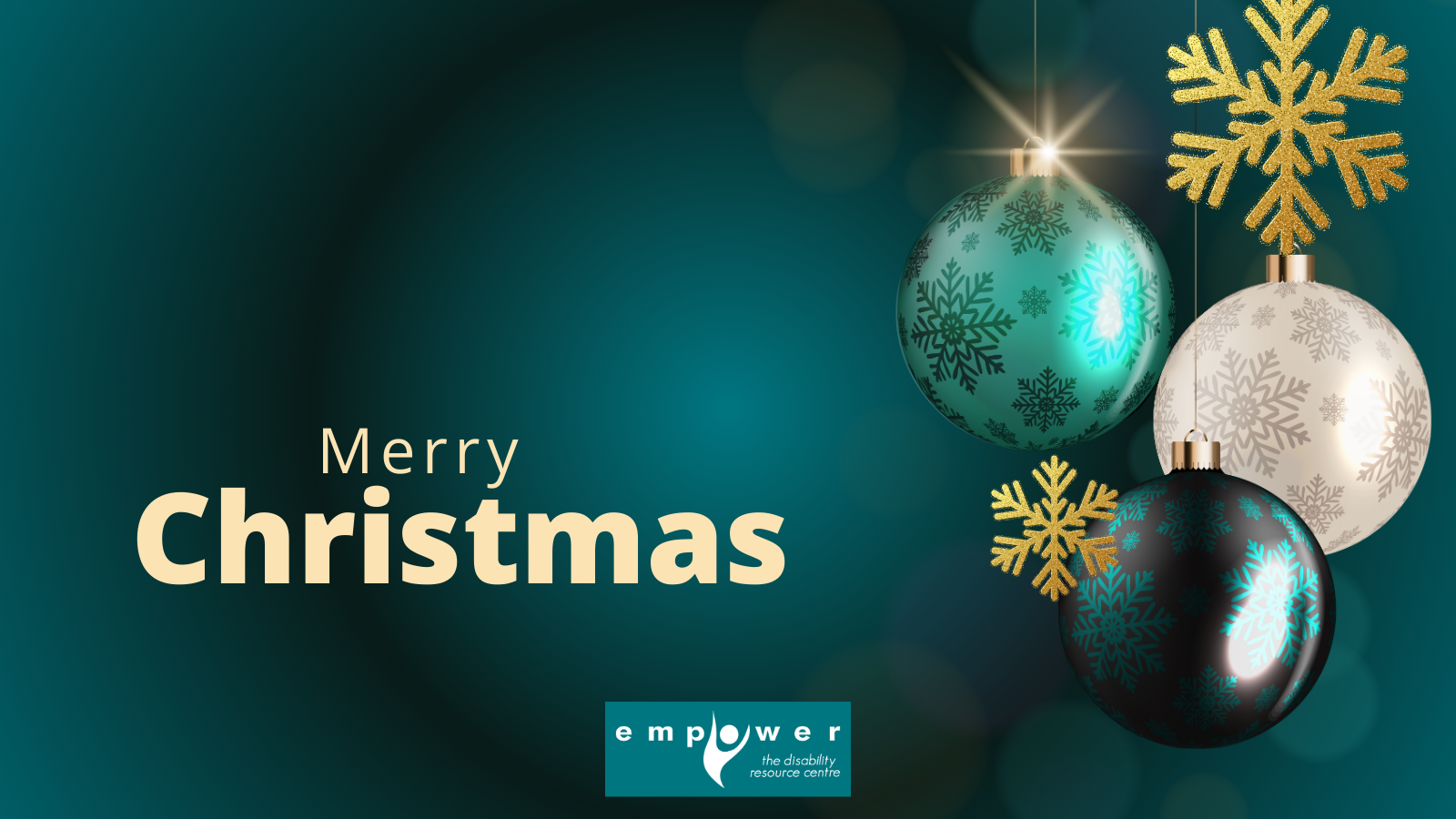
Merry Christmas to our members and to the entire disability community 🎄
We’re wishing you a season filled with warmth, care, and moments of rest and connection — however you choose to celebrate. Thank you for being part of our community, for showing up for one another, and for reminding us every day why accessibility, inclusion, and kindness matter.
Take care, be gentle with yourself, and know you are valued — today and always.💙
December 21, 2025

Congratulations to this year’s Independent Living Award winners! 🏆
We are proud to celebrate your achievements, leadership, and impact in our community. 🎉
Thank you as well to Minister Wall for attending and showing support for Independent Living and the disability community. Your presence and recognition mean a great deal to our award recipients and to us. 💙









